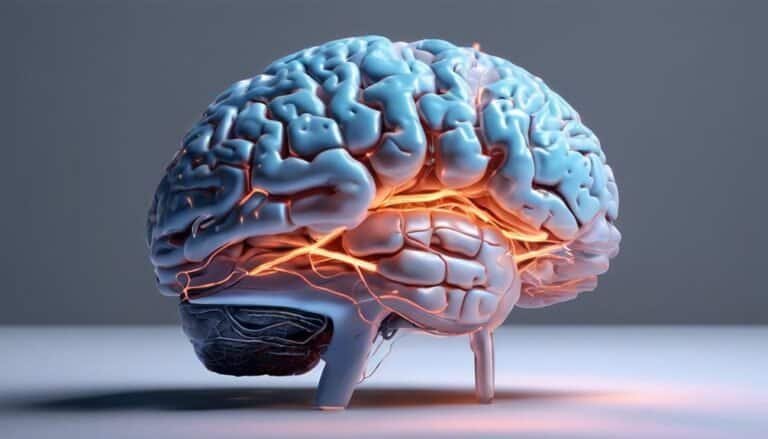How Meta is Transforming Digital Assistants with Celebrity Voices
Did you know Meta is adding stars like Judi Dench, Keegan-Michael Key, and Awkwafina to its AI? This big change is set to be shown off at Meta’s Connect conference in September. It’s a bold move to mix conversational AI with famous voices. This could mean big deals, possibly in the millions, showing Meta’s big plans for its platforms like Facebook, Instagram, and Meta Ray-Ban smart glasses.
With a boost in Meta’s AI budget to at least $37 billion for 2024, these updates will start a new chapter in personal virtual assistants. Adding famous voices to MetaAI aims to change digital innovation. It also aims to make virtual assistants more engaging and real for users.
Key Takeaways
- Meta is incorporating celebrity voices like Judi Dench and Awkwafina into its AI offerings.
- Scheduled to debut at the Meta Connect conference in September, these voices will enhance Meta’s digital assistant, “MetaAI.”
- Negotiations involve top Hollywood talent agencies, potentially leading to multi-million dollar contracts.
- This initiative spans Meta’s platforms including Facebook, Instagram, and Meta Ray-Ban smart glasses.
- CEO Mark Zuckerberg is investing $37 billion in AI development for 2024, emphasizing the importance of leading in AI innovation.
The Rising Influence of AI in Daily Life
Artificial intelligence is now a big part of our everyday lives. It shapes how we interact with technology. Companies like OpenAI are leading the way, offering AI that matches Google Assistant and Apple’s Siri.
Voice assistants show how important AI is in our daily routines. They make talking to machines easy, from smart homes to personal devices. AI stars like Lil Miquela and Lu do Magalu have millions of followers, proving AI’s big role in social media.
Let’s dive into the influence and reach of AI influencers to see how wide AI’s impact is:
| AI Influencer | Followers |
|---|---|
| Lu do Magalu | 6.9 million |
| Lil Miquela | 2.6 million |
| K/DA | 507,000 |
| Thalasya | 459,000 |
| Aitana Lopez | 300,000 |
| Imma | 400,000 |
| Shudu Gram | 240,000 |
| Bermuda | 228,000 |
AI influencers work on their own, learning from us. They can make content just for us by using our data. For example, Lil Miquela makes about $9,000 for each Instagram post, showing AI’s big business potential.
As we use AI more, it’s clear it’s here to stay. Voice assistants and AI in social media and marketing will make AI even more part of our lives.
Meta’s Strategic Investment in AI
Meta is moving fast in the AI race, led by CEO Mark Zuckerberg. He has a big plan for the company’s future. The company is putting a lot of money into AI, $37 billion, to stay ahead of others.
This shows how serious Meta is about changing how we talk to digital helpers.
Mark Zuckerberg’s Vision and Budget Allocation
Mark Zuckerberg wants to change the game with Meta’s AI. He’s putting a big part of Meta’s budget into AI projects. He wants to make chatbots that act more like humans.
Meta is spending a lot to add famous voices to its AI. This will make talking to AI more fun and real.
MetaAI: The Next Generation of Digital Assistants
Meta is working on MetaAI, the next big thing in digital helpers. They’re using famous people’s voices to make chatbots more interesting. They’ve created 28 AI characters that sound like real stars.
They also have a new AI Assistant that gives you info fast and makes pictures from text. These updates show Meta is getting ready to stand out in a crowded market.
Meta’s AI Studio helps businesses make chatbots for different platforms. This includes Facebook, Instagram, and Messenger. It’s all about helping with shopping and customer support. Meta’s big investment in AI will make users happier and more engaged.
Meta’s use of famous voices in AI is changing how we talk to machines. It’s a big step forward in AI technology.
Meta is leading the way with its strong focus on AI and Mark Zuckerberg’s vision. By investing in AI and growing its AI features, Meta is set to change digital interactions for the better.
Celebrity Voices in AI: The Stars Align
Meta is blending AI with celebrity culture to make digital assistants more human-like. By using famous voices, MetaAI aims for a more personal and engaging experience. Stars like Judi Dench, Awkwafina, and Keegan-Michael Key are now part of Meta’s AI team.
With voice cloning tech, Meta is pushing the limits of digital humans. This will make using platforms like Facebook, Instagram, WhatsApp, and Meta’s smart glasses more exciting.
Meta is offering Hollywood stars big money to join, aiming to seal deals before September’s Connect 2024 event. This move could change how we see AI and its personality. With a huge $37 billion investment in AI this year, Meta is serious about this project.
This mix of stars and AI could draw in more users and boost engagement on Meta’s platforms. It’s a new way to make AI feel more human.
Here’s a look at how other companies are using celebrity voices in AI:
| Company | Celebrity Voices | Investment | Users Engaged |
|---|---|---|---|
| Meta | Judi Dench, Awkwafina, Keegan-Michael Key | $37 billion (2023) | Projected increase |
| OpenAI | Submissions from 400 voice actors | Not disclosed | Narrowed to 14 finalists |
| Microsoft | Approached Scarlett Johansson | Not disclosed | Projected 50 million AI-powered PC sales |
Previous attempts, like those with Snoop Dogg and Tom Brady, didn’t quite hit the mark. But Meta’s new approach is more thoughtful and effective. This blend of Hollywood and AI could lead to a future where AI interactions are more engaging and futuristic.
How Meta is Transforming Digital Assistants with Celebrity Voices
Meta is making a big move by adding stars like Judi Dench, Keegan-Michael Key, and Awkwafina to its AI tools. This shows the company’s drive to improve user engagement and use AI personalization for a more personalized user experience.
Celebrity Conversations: Awkwafina, Judi Dench, and More
Meta is talking with top Hollywood agencies to get these famous voices for its main digital assistant, MetaAI. The aim is to make these digital chats feel more like talking to a friend. Getting voices from stars like these, for which Meta might spend millions, shows the company’s focus on being real and high-quality.
User Engagement and Personalization through Celebrity Voices
Adding these famous voices to Meta’s platforms like Facebook, Instagram, and Meta Ray-Ban smart glasses will change how we use technology. This move is expected to elevate personalized experiences. With advanced voice synthesis and natural language processing, Meta makes interactions not just more engaging but also very real. This new way is likely to increase user numbers and make using technology smoother and more engaging.
The Technology Behind Celebrity Voice Integration
Adding celebrity voices to digital assistants uses advanced tech like generative AI, voice mimicry, and speech recognition. These tools are key for a smooth and real experience that users will love.
Advancements in Voice Synthesis and Cloning
Celebrity voices in AI rely on new voice synthesis and cloning tech. Generative AI has gotten so good it can make voices sound almost real. Meta bought voices from stars like Judi Dench and Awkwafina, showing how powerful these techs are.
Ensuring Authenticity and Quality in AI Voices
Meta focuses a lot on making sure AI voices sound real. They work with stars to get rights and keep their voices true to themselves. They check the voices carefully to make sure they sound right, avoiding mistakes like Scarlett Johansson’s with OpenAI.
Working with SAG-AFTRA shows how serious they are about doing things right. By using top voices and advanced AI, Meta wants to change how we talk to digital helpers. This could make using digital assistants more fun and set a high standard for AI quality.
How Celebrity Voices Enhance Human-Computer Interaction
In recent years, celebrity voices have changed how we use technology. Companies like Meta use voice technology to make digital experiences more emotional. Hearing familiar voices makes interactions with AI feel more personal.
Now, voice assistants and smart speakers are everywhere, from homes to cars. These devices can do real-world shopping, acting like humans in conversations. This is thanks to AI and Machine Learning, making interactions feel real and fun.
One cool thing about new AI platforms is they can copy celebrity voices. At events like the Voice Summit 2021, we saw how this tech can be used in many ways. Celebrities can now record voiceovers from anywhere, thanks to advanced voice cloning.
But, using voice tech comes with problems. We need to think about identity checks, keeping data safe, and the right use of voice tech. We also need rules to protect our privacy when using voice data.
| Benefits | Challenges |
|---|---|
| Engaging digital experiences with celebrity voices | Identity verification due to voice cloning |
| Emotional connection in AI interactions | Data security and privacy concerns |
| Remote endorsement by celebrities | Ethical considerations of synthetic voices |
As we head towards the Metaverse, voice tech will be key in how we interact with virtual worlds. Celebrity voices could make our digital friends more like real ones, making our experiences more personal and fun.
Hollywood’s Response and Financial Implications
The use of celebrity voices in Meta’s AI has stirred up a lot of action in Hollywood. Big talent agencies are key in talks to set the rules and pay for their clients’ digital rights. This marks a new chapter for the *entertainment industry*, blending digital tech with star power.
The Role of Talent Agencies in Negotiations
Agencies like Creative Artists Agency (CAA) and United Talent Agency (UTA) are leading the talks. They make sure celebrity voices are used right, protecting their clients’ rights. With Meta offering big deals to stars like Judi Dench and Awkwafina, the talks are detailed, focusing on long-term use and ethics of voice cloning.
Financial Commitments for Celebrity Participation
Meta is making big financial offers to get Hollywood’s top stars on board with AI. These deals show the careful planning in combining big names with AI tech. They’re key as Meta aims to wrap up deals by its big event, Connect 2024.
Meta’s offer of competitive deals shows its dedication to getting famous faces involved. For instance, the *Realeyes study* valued at $150 per hour has caught the eye of many actors out of work, making it a tempting offer. Yet, concerns like those from the Writers Guild of America could affect the financial side. Jonathan Taplin warns that AI might focus too much on speed over creativity.
Deals with SAG-AFTRA show a push to match fast tech progress with fair pay. The partnerships between Meta and these groups highlight how *talent representation in AI* and strong *digital rights management* can work together. This could lead to more use of generative AI in Hollywood.
User Reactions and Expectations
Meta is introducing digital assistants with famous voices, causing mixed feelings. People are excited and skeptical about this big step. They want to know if it will really change how we interact with technology.
Public Sentiment and Anticipation
Many users are looking forward to Meta’s new AI assistants. They’re excited to talk to AI versions of stars like Snoop Dogg and Kendall Jenner. This could make interacting with technology feel more like talking to a real person.
Meta is working hard to make sure users feel safe and respected. They promise to protect digital rights and follow ethical guidelines. This makes people more likely to trust these new tools.
But, not everyone is thrilled. Some worry that these new features might not be useful. They want to make sure these AI personalities actually help with everyday tasks.
Potential Drawbacks and Criticisms
Privacy is a big concern for many. Users are asking how well Meta protects their voice data. They’re also worried about how accurate and right the AI responses will be.
Meta has warned users about the risks of AI-generated messages. This adds to the uncertainty. Legal issues, like getting celebrities to agree to use their voices, are also a problem. Some people don’t like the idea of talking to AI versions of real people. They think it’s not natural.
These concerns show the need for ongoing feedback from users. It helps Meta make sure their AI meets what people expect and need.
The Future of Conversational AI with Celebrity Voices
Meta is changing the game with its use of celebrity voices in AI. Stars like Judi Dench, Awkwafina, and Keegan-Michael Key are making AI more engaging. This move aims to make digital assistants more relatable and fun.
Potential Innovations and Applications
Adding celebrity voices to AI could make it feel more personal and human. It could change how we interact with AI for the better. With big names on board, we’re seeing a big step forward in AI development trends.
Here are some ways celebrity AI could make a difference:
- Revolutionizing customer service with familiar voices.
- Improving education with virtual tutors that students know and trust.
- Creating immersive storytelling experiences where users help shape the story.
Implications for Competitors in the AI Market
Meta’s use of celebrity voices is making other tech companies take notice. It shows how important it is to keep improving conversational AI. OpenAI, with its voice-capable ChatGPT, is also pushing the boundaries.
But there are ethical issues to consider, like privacy and consent. It’s crucial that celebrities have control over their digital images. This ensures AI is used responsibly and builds trust with users.
Case Studies: Celebrity Voices in Action
Using celebrity voices in different places is more than fun; it’s a smart way to get people more involved. This part looks at how well celebrity voices work in smart wearable technology and on social media.
Meta Ray-Ban Smart Glasses and User Experience
The Meta Ray-Ban smart glasses are a great example of smart wearable technology. They use celebrity voices to make the experience more personal and fun. People using these glasses feel more connected and trust them more, as shown in a study by William Seymour and Max Van Kleek.
This study looked at how people form bonds with voice assistants and what affects trust and connection. It’s key to know how famous voices can make technology feel more like a friend, making it easier to trust and relate to.
Social Media Integrations: Facebook and Instagram
Celebrity voices also play a big part in social media, like on Facebook and Instagram. This social media AI integration helps make interactions more engaging and personal. By adding famous voices to everyday chats, these platforms can build a stronger bond with users, making their experience better.
William Seymour and Max Van Kleek’s research points out the need for ethical use of AI voice technology. They talk about the importance of getting people’s okay and stopping misuse. Their findings show that AI can do more than just entertain; it can also improve how we interact with each other online.
“Understanding the nuances of human-technology relationships is essential for the future development of AI,” noted Seymour and Van Kleek. “Our research underscores the importance of quality, diverse voice data in creating more engaging, trustworthy AI experiences.”
These examples show how celebrity voices can change the game across various platforms. They highlight the benefits for users now and the big possibilities for AI in the future.
Conclusion
Meta is getting ready to show off its new celebrity voice AI at the Connect conference. This move highlights Meta’s commitment to AI innovation and making things better for users. By adding famous voices like Judi Dench, Keegan-Michael Key, and Awkwafina, Meta is changing how we talk to AI.
This mix of entertainment and tech could make users more engaged. It shows how combining well-known voices with AI can make things more fun and personal.
Meta knows the market well, seeing the big names like Siri, Alexa, and Google Assistant leading the way. With more devices getting voice features, having something special like celebrity voices is key. Meta is investing big in stars to make its digital assistants stand out.
This move could change how we talk to AI for the better. It’s all thanks to new tech that makes voices sound real. With more people using voice assistants, Meta’s plan to mix AI with famous voices is a smart move.
Meta’s bold plan is exciting and could change how we interact with AI. It’s a mix of something familiar and the latest in tech. This could make talking to AI more enjoyable and personal.
Source Links
- Meta’s Digital Assistant Goes Hollywood with Celebrity Voices
- Meta in Talks to Use Voices of Judi Dench, Awkwafina and Others for A.I.
- The Rise of AI Influencers: Exploring the Future of Social Media
- What Are AI Influencers? | Built In
- Meta’s Bold AI Move: Hollywood Voices in AI Projects
- From AI Assistant to image restyler: Meta’s new AI features | TechCrunch
- Meta’s Big Move to Bring Celebrity Voices to AI
- Scarlett Johansson Fights for Her Voice, and More AI News
- OpenAI’s New Core Values: A Deep Dive into the Company’s AGI Focus
- Introducing New AI Experiences Across Our Family of Apps and Devices | Meta
- Celebrities as Voices: Meta’s AI Transformation
- Meta Seeks A-List Hollywood Celebrities To Voice AI Tools
- Meta Offers Millions to Hollywood Celebrities for Exclusive AI Voice Deals
- Is Voice the Interface of the Metaverse?
- AI as Your BFF: The Latest Frontier in Human-Computer Interaction | | CryptoRank.io
- The Impact of Generative AI on Hollywood and Entertainment | Thomas H. Davenport and Randy Bean
- Meta’s multi million dollar deals to Hollywood stars for AI voice projects | The Tatva
- How Meta and AI companies recruited striking actors to train AI
- Meta’s Cutting-Edge AI Celebrity Voices Revolutionize Tech
- Meta’s AI Studio Is Set To Bring Creators to AI-Life on Instagram.
- Tom Brady, Paris Hilton, Snoop Dogg and Kendall Jenner change their names for AI
- Meta in Talks for Popular Celebrity AI Voices
- Meta is in talks with Awkwafina and Judi Dench to create a digital assistant • Neosmart | Insights
- Exploring Interactions Between Trust, Anthropomorphism, and Relationship Development in Voice Assistants
- AI Voice Transfer | Deepgram
- Meta to Introduce AI Voiced by Celebrities Like Judi Dench Next Month
- How AI bots and voice assistants reinforce gender bias | Brookings
- WhatsApp’s Meta AI Integration: Revolutionizing User Interaction







